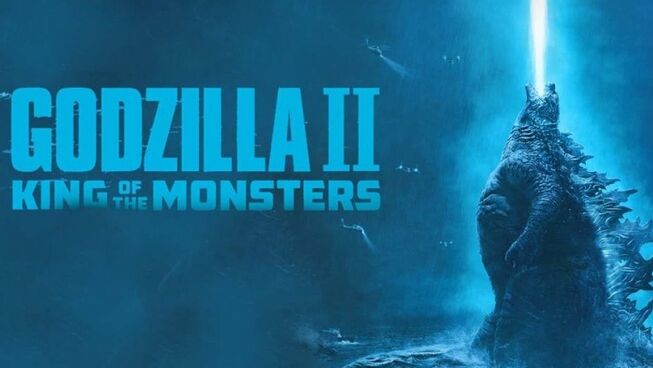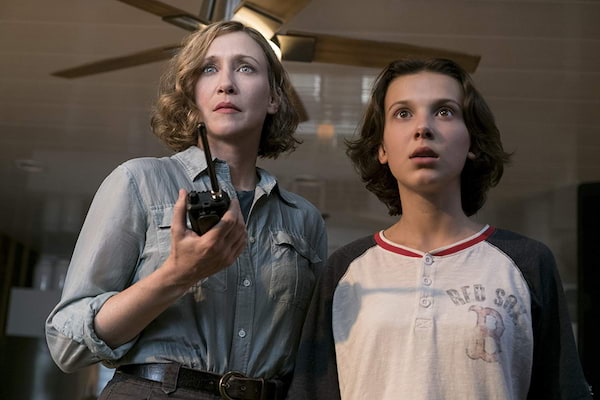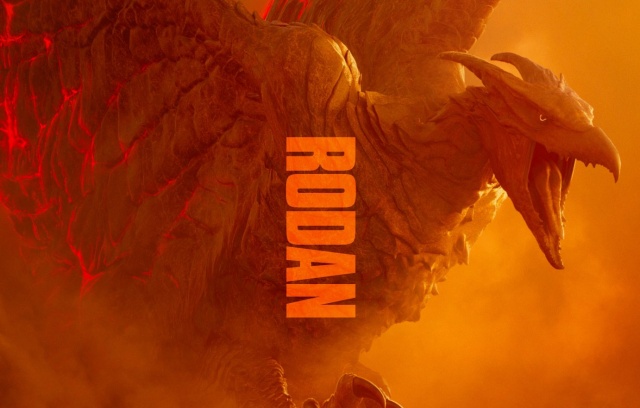Godzilla II: King of the Monsters

Godzilla is looking pretty good for being over 65 years old, since his debut in Ishirō Honda's 1954 film that bore his name. And he has since gone on to be in over 30 films in his illustrious on-screen career. The latest alliteration of the hulking figure is part of the resurgence of the monster universe from Warner Brothers and Legendary Entertainment called the Monsterverse that will include the famous movie monsters throughout history. With the success of Godzilla (2014) and Kong: Skull Island (2017), get ready for cinemas to be overrun with Mothra, Rodan, and the extreme antagonist, the three-headed King Ghidorah.
It has been five years since Godzilla fought to defend humanity from a MUTO (Massive Unidentified Terrestrial Organism) and their battle manages to cause massive destruction on the city of San Francisco. These two creatures were just the beginning of what began with the awakening of these pre-historic beasts around the world.
Mark and Emma Russell (Kyle Chandler, Vera Farmiga) were leading scientists at the crypto-zoological agency Monarch, but after the tragic death of their son, they both look for solace for their grief in different places. Mark goes off to study the habits of the Timberwolf in the Northwest of the United States, while Emma remained with Monarch to develop the technology that would allow humans to communicate with the monsters.
In a secret Monarch facility, Emma’s device is put to the test upon the birth of the monster known as Mothra. Even though the giant creature came out of the cocoon ready for a fight, the Orca manages to calm the savage beast until an anarchist eco-terrorist group invades the facility. This sets off a chain of events that leads to Dr Russell and her daughter, Madison (Millie Bobby Brown), being kidnapped to use this new machine to control more creatures around the world.
The team at Monarch must retrieve Mark to assist in finding his family and provide insights on what this terrorist group has planned. Each step of this subversive act eventually leads to the waking of some of the greatest horrors of the world and rouses the attention of the king of beasts, Godzilla. The governments, militaries, and people of the world wonder if he will be on the side of the monstrous creatures or humanity?
With a track record that spans over six decades, there must be an appetite for this humongous, nuclear lizard and world domination. For fans, there must be a level of suspension of disbelief that must be engaged in the back of their minds. The utter ridiculous nature of this concept is even harder to embrace in this modern world of earth scans, satellites and Google. Even though there may be aspects of this world that have yet to be explored, primarily in the depths of the ocean, this genre has its roots soundly buried in science fiction that exceeds the most far fetched space exploration considerations.
All that is to say that once audiences get past logic and basic rules of nature, the Monsterverse is ludicrous, but mind-numbing fun. Godzilla II: King of the Monsters is not the best film in this new franchise; that honour goes to Kong: Skull Island. Despite being overstuffed with more beasts than your local zoo, this is a science-fiction journey that should appeal to the most devoted fan. Loud shrieks, earth-shattering battles and humans merely trying to not get stepped on makes for a familiar, but entertaining adventure.
 The monsters have a penchant for battling on large metropolises and the humans provide the object lesson for the storyline and the comic relief. Even though the Russell family’s dramas do give the heart needed to provide some interest in the human characters.
The monsters have a penchant for battling on large metropolises and the humans provide the object lesson for the storyline and the comic relief. Even though the Russell family’s dramas do give the heart needed to provide some interest in the human characters.
Otherwise, this is a film about the introduction of a new world of monsters and the few humans who survive this horrific onslaught. Each character plays to the stereotype that is expected of the scientists who are studying the beasts and what film of this ilk does not have an environmental message for ‘those bad humans,’ even though the villainous element in the movie is the eco-terrorist group.
As the writer/director, Michael Dougherty manages to deliver a simple story within this complex world of the Monsterverse. There are few surprises in the story and the battles become grander with each film, which may make you wonder what planet will be left to fight for in the upcoming movies. This delivers the excitement of this genre and an incentive to see it on the big screen, even though there is room for debate on whether Godzilla is really the king.
Mosterverse reviews: Godzilla (2014) - Kong: Skull Island
REEL DIALOGUE: Why do we think we can control creation?
For some it is a means of proving their intelligence, for others it might be exerting their power and for many it is merely a curiosity that must be explored.
One of the answers to this question can be found in the study of the Bible. Based on the premise of the creator God who made all mankind in his image, it is no wonder that God's creation would want to create and control what is made. This desire manifests itself in art, food, clothing, housing and even into the sciences. There is a multitude of moral juxtapositions to wrestle through in this consideration of life, but the very desire to create is ingrained in humanity.
The challenge is that God continues to prove that he is the only one to get it right when it comes to real creation. So, is the desire to create new life or modify the creatures of this world merely a lesson in futility or too hard for mankind to deny? Discuss.
Questions
1. What does it mean to be human? (Genesis 1:27, 2:5-25)
2. As a creator, what was God's purpose in creating mankind?
(Isaiah 43:7, Colossians 1:16)
3. Is God a perfect and flawless creator? (Genesis 3)


